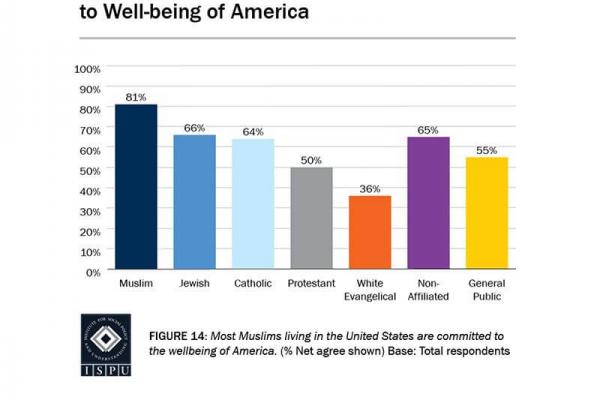May 2, 2018
“The vast number of Muslims say being an American is important to how they think of themselves,” said Dalia Mogahed, director of research at the ISPU. “They also say that being a Muslim is important to how they think of themselves. When you look at those identity factors, they’re actually mutually reinforcing — meaning, if you have a higher Muslim identity, you are actually more likely to have a stronger American identity. They’re not in competition.”
Read the Full Article

Already a subscriber? Login
